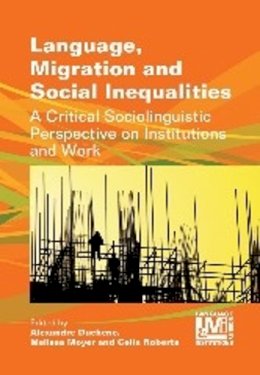
Language, Migration and Social Inequalities
Alexandre Duchene
Migration and the mobility of citizens around the globe pose important challenges to the linguistic and cultural homogeneity that nation-states rely on for defining their physical boundaries and identity, as well as the rights and obligations of their citizens. A new social order resulting from neoliberal economic practices, globalisation and outsourcing also challenges traditional ways the nation-state has organized its control over the people who have typically travelled to a new country looking for work or better life chances. This collection provides an account of the ways language addresses core questions concerning power and the place of migrants in various institutional and workplace settings. It brings together contributions from a range of geographical settings to understand better how linguistic inequality is (re)produced in this new economic order.
Product Details
About Alexandre Duchene
Reviews for Language, Migration and Social Inequalities
Alexandra Jaffe, California State University, Long Beach, USA This major sociolinguistic contribution, with its wide-ranging and detailed ethnographic attention to the structures shaping migrant experiences of language, sheds innovative analytic light on the neoliberal regimentation of language at work, in school, and in bureaucratic processes, the commodification of language skills, and the contradictions of contemporary capitalism that shape linguistic practices and ideologies.
Bonnie Urciuoli, Hamilton College, USA This book does a wonderful job of focusing critically on the sociolinguistics of migrant workers - the protagonists of the book - in various institutions and workplaces (or their exclusion from them). From the informal locutorios of Barcelona and Congolese la débrouille in Cape Town, to the decapitalisation of migrant students in Madrid schools and the mismatched aspirations and actual work of Japanese flight attendants, these studies focus both on local migrant sociolinguistics as well as wider social and economic orders. Making questions of the (re)production of linguistic, social and economic disparities central, this book thus provides vital insights into language, mobility and inequality.
Alastair Pennycook, University of Technology, Sydney, Australia This book contains a wealth of good scholarship and revealing critical analyses of the local ways in which social inequality is produced or contested. Each of the contributions has been very well written and the authors show a sincere commitment to learning how language issues affect people’s life chances.
Joan Pujolar, Universitat Oberta de Catalunya, Spain
Journal of Sociolinguistics, 2015-2016 (Volumes 19-20)
